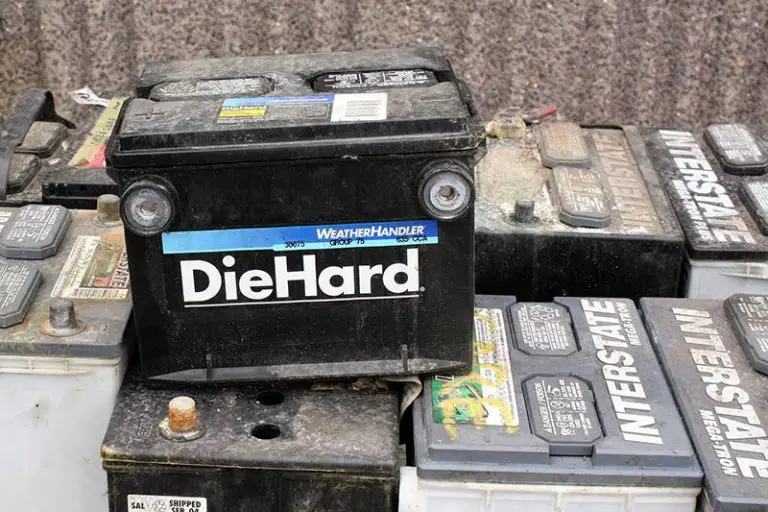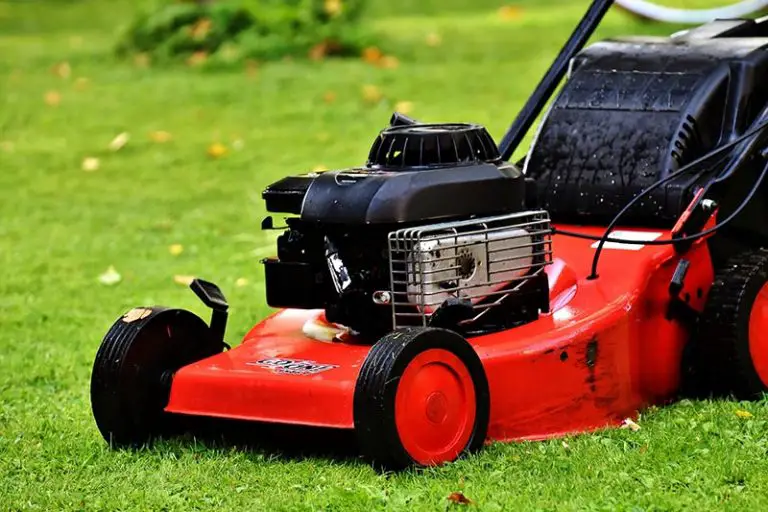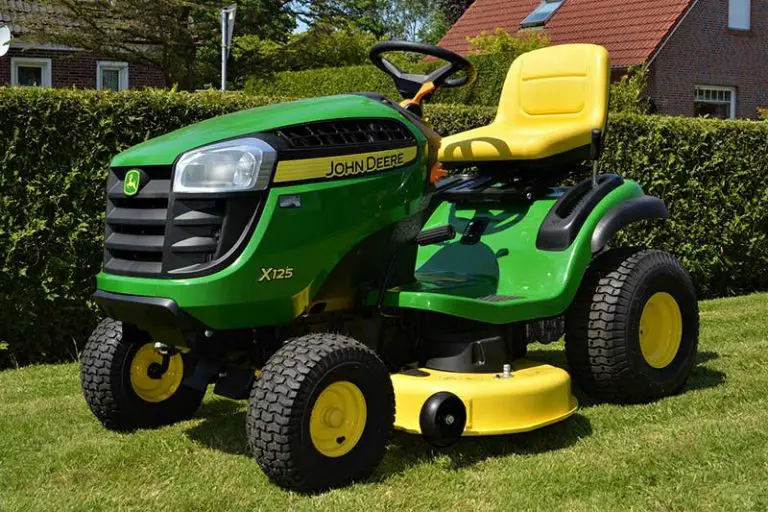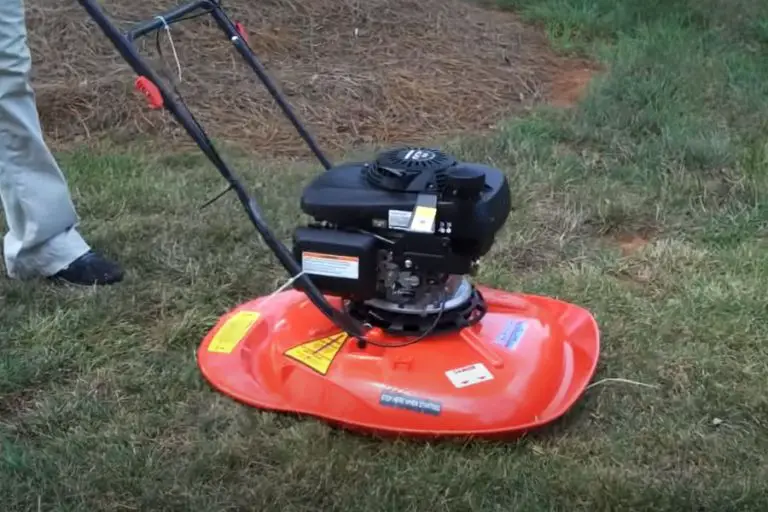Can you Overcharge a Lawn Mower Battery?
Overcharging a battery is one way to damage its power storage and intake, and could potentially lead to corrosion or fires.
It is entirely possible to overcharge a lawn mower battery, but it is an easy situation to avoid if you have a suitable charger and are wary of how long the battery has been charging for.
What is Overcharging?
Overcharging is a term used to describe a battery that has been charged beyond its specified voltage. This is done by leaving the battery plugged in and on charge for a longer time than necessary, after it has already been fully charged.
Overcharging a lawn mower battery can be dangerous as it can damage the battery itself, or it could potentially lead to harm to the user themselves.
How to Avoid Overcharging a Lawn Mower Battery
Overcharging a lawn mower battery can be fairly easy to accidentally do, but is also easily avoidable if the correct precautions are taken.
Knowing the type of battery your lawn mower uses can help choose the best precautions to take against overcharging. For instance, there are two types of batteries available that could potentially be installed in your lawn mower. These batteries are lithium-ion batteries, or lead acid batteries. Lithium-ion batteries are more commonly found in machinery such as lawn mowers due to their power retention. They are, however, still very easy to accidentally overcharge.
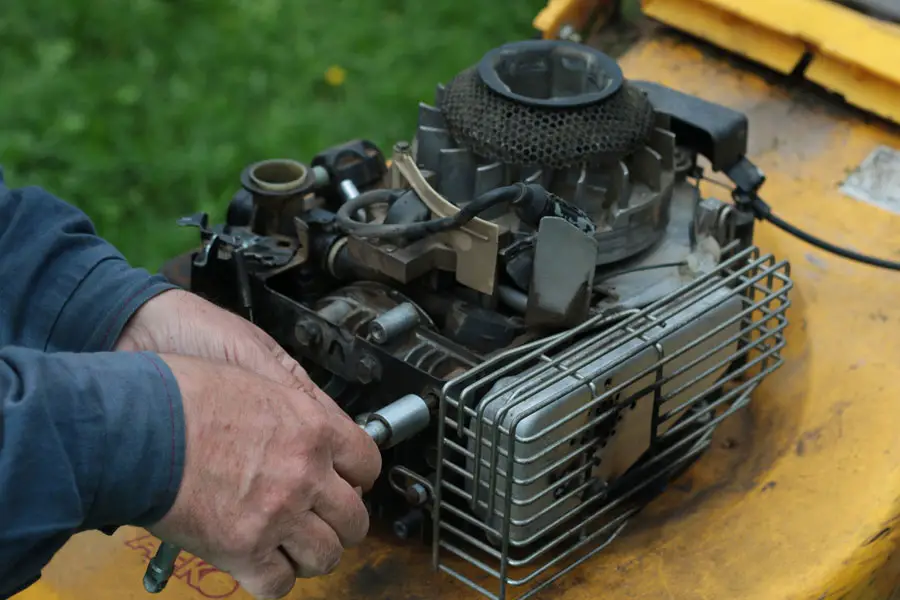
Charger Cable
Using a modern and correct charger cable can reduce the risk of a lawn mower battery being overcharged. The correct charger for your lawn mower’s battery will have the same output voltage and Ah rating as the lawn mower’s battery.
Battery Type
Some battery types are easier to overcharge than others. Whilst, conventionally, lawn mowers run using a lithium ion battery, there are a select few that use lead acid batteries. Lead acid batteries are notoriously easier to overcharge due to their composition, and it’s also advised to ensure that these types of batteries are charged fully with each session. These batteries typically last approximately 1,500 charging cycles, and this can be affected if they are not charged fully when they are plugged in.
Charging Time
The amount of time you have your lawn mower battery charging will affect its chances of becoming overcharged.
Leaving a lawn mower charging unattended for a long period of time is likely to cause overcharging. This is especially common in lawn mowers left to charge overnight.
Risks of Overcharging a Lawn Mower Battery
Overcharging comes with several risks that may serve to be deterrents to those who frequently overcharge their machinery.
Overcharging a lawn mower battery can damage the battery, by causing unstable conditions within the battery. This is due to the heat produced by charging, along with the chemical components working inside the battery. This can also lead to an increase in pressure inside the battery. It can also cause thermal runaway if the casing of the battery is damaged.
There is an ever-so small risk of explosion in overcharging cases. This is due to the build up of pressure within the battery, and the highly-explosive gas that is produced called hydrogen sulfide. This is often only seen in batteries that are lead acid based.
Best Battery Type for a Lawn Mower
The best type of battery for a lawn mower is most likely one that is lithium-ion. Lithium-ion batteries are commonly used in all sorts of technology and are of particular use in cell phones. These batteries, if overcharged, enter a state of saturation once they have reached their capacity in an attempt to limit any chance of risks occurring.
They can also support opportunity charging, unlike lead acid batteries, and can be charged partly over short periods of time, This means that each time they are plugged in, they don’t need to be charged fully.
How Long Does a Lawn Mower Battery Last?
Lawn mower batteries can last anywhere from 3-5 years before they begin to deteriorate. This happens as the acidic components of a battery will begin to corrode the casing and may leave residue on other components of the battery and machine.
These batteries’ lifespans can be improved by taking a few different precautionary measures.
Final Thoughts
Overcharging a lawn mower is a pretty easy thing to do. It’s easy to put something on charge and leave it for an extended period of time without checking on it. Sometimes our busy lives prevent us from going back at exactly the right time and seeing whether something has fully charged. Depending on your battery type, your lawn mower may or may not be able to support this type of charging. However, as technology advances, batteries also improve, meaning that most lithium ion batteries are safer to use with less risks associated with overcharging than other types of batteries.
Whilst overcharging any type of battery isn’t ideal, there are ways of preventing it, and batteries available on the market that are safer than others.


